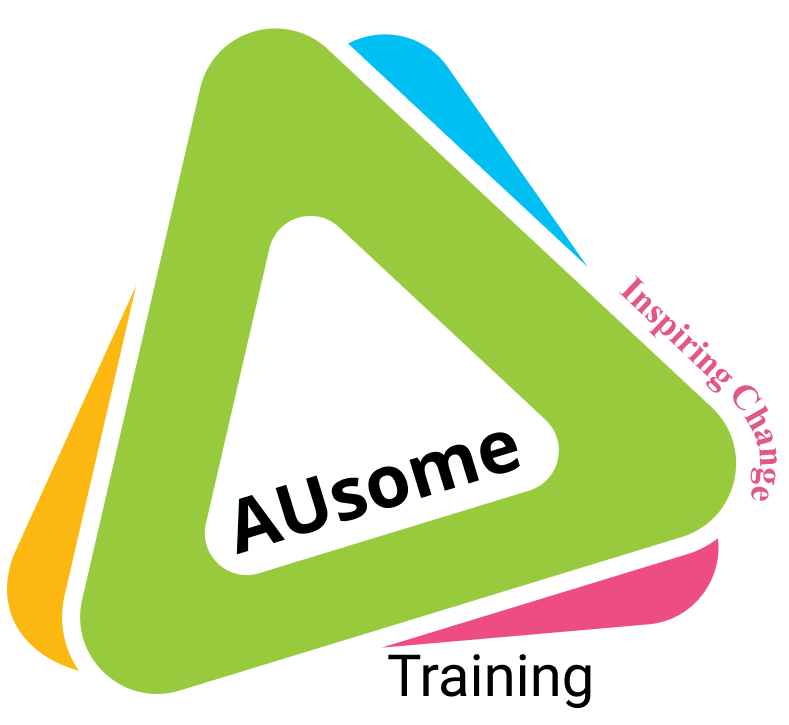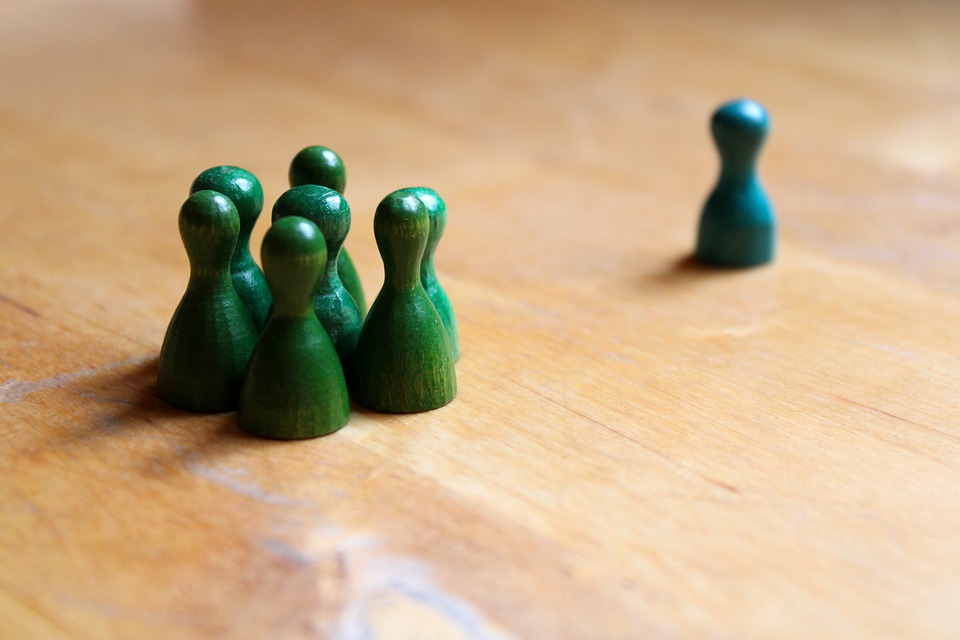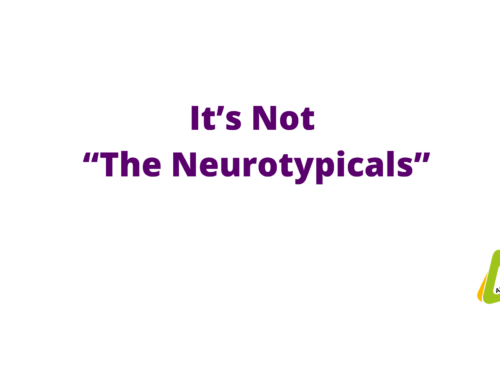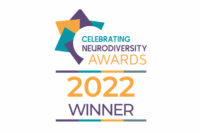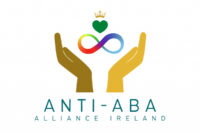What is ableism?
It’s when we discriminate against another based on our perception of their ability or what people refer to as ‘disability’.
We do this in lots of ways:
When we speak FOR the person.
When we put our needs ahead of theirs.
When we belittle them.
When we dismiss them.
When we treat them like infants.
When we speak to them in a tone that’s different to others.
When we take away their rights.
When we impose our ideas of what we think is right for them on them, usually without asking.
When we exclude them from our cultural activities.
When we exclude them from important discussions and policies regarding their rights.
When we exclude them socially.
When we ignore their actual needs.
When we think we know better than them.
When we forget that they are equal to us.
Sometimes we are ableist when we think we’re not:
We say things that are offensive like when non-autistic people think it’s ok to call us disordered or diseased and search for cures and causes. That is ableism. Or when non-autistic people tell us we don’t know what we’re talking about when we’re explaining autism.
When we think our way of existing is better, we pity the disabled person or we say things like ‘sher God help us’ or when we say things like ‘you’re an inspiration’ . Lots of things we say, and think we’re saying in kindness are actually discriminatory because they come from a place where the person thinks their way of being is better.
We can often include people and think its inclusion. I was at an event recently where they included people with different abilities. ‘Great’ I thought. But then those people got a special mention for just doing the same thing everyone had been doing. That pointed them out for their difference. That’s not equal treatment. When we call people ‘special’, how is that equal?
Ableism is when we compare the person to a perceived state of ‘normal’ and say things like they are ‘missing limbs’ because they are actually whole and are only ‘missing’ something when we compare to the perceived ‘normal’.
We do this with autistic people too. We constantly compare autistics to ‘normal’. Now, I’ve been working with kids for almost 20 years and I’ve yet to meet the child who is always in control of their emotions, has perfect manners, always has the right thing to say, never has a bad day, understands everything and learns everything at exactly the right time, that can read the minds of others and has the correct amount of empathy for every situation, always knows what to say and yet… we try to model the autistic child on this non-existent perfect ‘normal’ child who doesn’t exist in the first place.
Here’s an example of ableism even when we don’t realize we’re being ableist:
One day I met my friend after his run. I asked him how he got on. He said ‘great, and I did an extra lap. I saw a woman in a wheelchair and thought she’d love to be able to do what I’m able to do so it motivated me to do another lap, coz I’m lucky to have use of my legs’.
I said ‘that is ableism’
He said ‘why?’
I said ‘ because you made massive assumptions about her thoughts & needs and you think your way of being is better because you think she envies you and your ability to run.
That is ableism.
When we think we are better and the other person is less. That is ableism.
We discuss ableism towards non-speaking Autistics in our Autism and Communication Webinar if you’d like to know more
